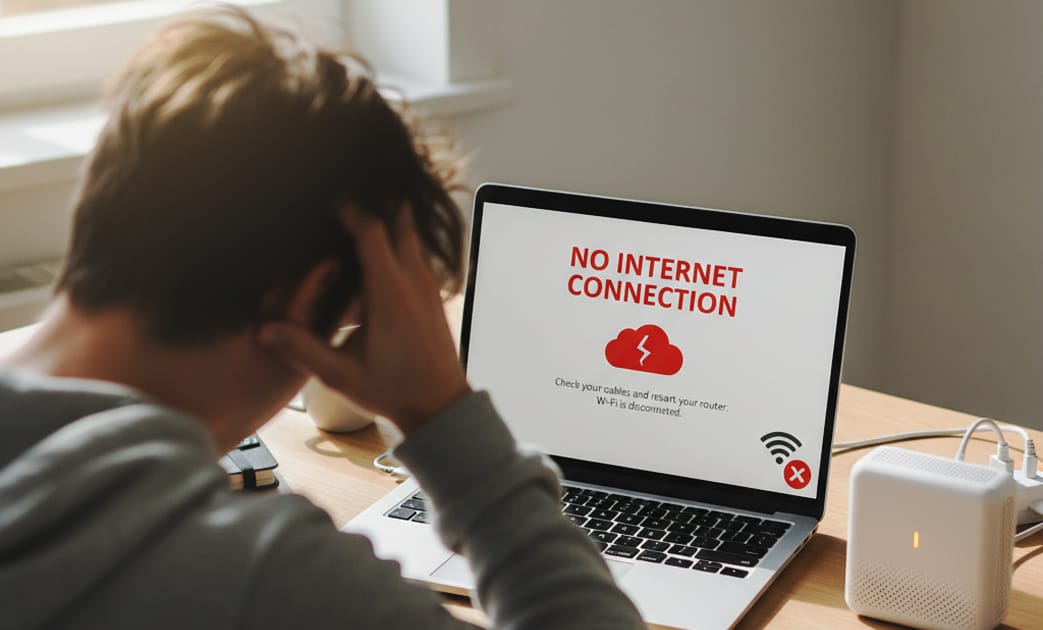
Your internet package may advertise high speeds, but in reality your browser stalls, video calls freeze, and online games lag at the worst moments. Slow internet isn’t just an annoyance—it directly impacts productivity, interrupts streaming and gaming, and can even make simple tasks like sending emails unnecessarily difficult. Before pointing the finger at your Internet Service Provider (ISP), it’s worth noting that many connectivity issues often stem from your own home or office setup.
Slow Internet: Why Your Connection Feels Slow?

1. Router placement or outdated firmware
Wi-Fi signals naturally weaken as they travel through walls, floors, and furniture, which means a router placed in a corner or hidden behind large objects can significantly reduce coverage. Outdated firmware can further restrict performance and compromise network security, making placement and updates critical for a stable connection.
2. Excessive Connected Devices
Phones, TVs, tablets, game consoles, and smart gadgets all use your internet. Even when you’re not using them, many still update or sync in the background, which slows things down.
3. Faulty cables or wireless adapters
A damaged Ethernet cable, a poor-quality splitter, or an old Wi-Fi adapter can slow internet speeds, even if your provider is giving you the full bandwidth.
4. DNS or Network Routing Problems
Sometimes your ISP’s DNS servers are slow or overloaded, which makes websites take longer to load. Poor network routing can also cause delays, even if your speed test shows normal results.
Practical Fixes Before Calling Support
• Reset and update your router: A simple reboot can resolve temporary glitches, while firmware updates often deliver stability and performance improvements.
• Change your DNS: Switching to Google (8.8.8.8) or Cloudflare (1.1.1.1) DNS servers can speed up browsing and improve reliability.
• Monitor background internet usage: Applications like Zoom, Dropbox, Steam updates, or Windows Update can consume massive bandwidth. Shut down or reschedule them to free up speed.
• Compare Cable Connection with Wi-Fi: If speeds are fine on a wired connection.
When to Call Focus PC
If you’ve tried the basics but your internet still feels sluggish, it may be time for expert help. At Focus PC, we can run full diagnostics to identify hardware or software bottlenecks, replace faulty or outdated network cards, cables, and routers, optimize Wi-Fi coverage across large homes or offices, and configure your network for maximum efficiency and security.
Get to the Root Cause
A sluggish connection doesn’t necessarily require upgrading your internet plan—it often indicates an issue within your existing setup. With a comprehensive connectivity audit from Focus PC, we identify and resolve the real causes of slow performance, ensuring you get the speed you’re already paying for. Contact us today and restore seamless performance for work, streaming, and gaming.

